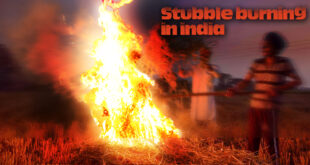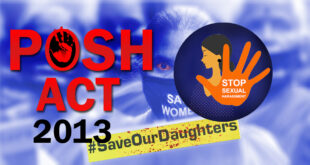In India, it is the quintessential form of political privilege and social authority
As the young woman from Unnao, victim of multiple outrages, battles for her life, we, who are often reduced to being hapless chroniclers, have once again to wonder at the everyday workings of India’s criminal justice system. Though several rounds of police and judicial reforms have sought to improve its workings, and humanise its approach, the fact remains that at the level of the police thana, other factors direct police action. Local political power; economic, social and sexual tensions between individuals; caste and community equations; habitual misogyny; and the measure of impunity that a perpetrator of crime might claim and exercise all shape not only police responses but those of the civilian government as well, including of doctors, revenue officers and those in the local Collectorate. As those of us who have worked on issues of sexual assault since the late 1970s know, a complainant is most likely to be disbelieved, blamed for what happened to her, and denigrated and rubbished if she is a Dalit or Adivasi, or from a community perceived as marginal. If she persists in keeping with the justice system, its menacing indifference is calculated to demoralise her. If her family supports her, there might be some relief and care, but if they don’t or cannot because they are themselves under pressure to keep quiet, she is left feeling abandoned and friendless and, worse, tainted. Many a time, a protest or a campaign, or the continued presence of women’s groups, Dalit groups and progressive political and civil rights interventions alone have made it possible for even an FIR to be registered. What stands out even in this familiar landscape of crime is civic indifference to sexual violence. It is as if such violence is expected in situations where a supplicant approaches a man in power, and is made to wait upon or transact his ostensible largesse. We were witness to a similar and equally outrageous act in Banda, in Uttar Pradesh, in 2010, when a minor girl accused sitting Bahujan Samaj Party MLA Purushottam Dwivedi of rape. Her family had approached him for assistance and protection, since there had been an attempt to kidnap and sell the girl, with the collusion of the local police. Unlike in the Unnao instance, though, Mayawati, who was Chief Minister, called for the prosecution of her MLA. It is noteworthy that the victim had the support of the country’s only rural women’s news network, Khabar Lahariya , which has been long active in the region. For one, they are validated in any number of ways, first by the family, and next by kin and caste networks. Kuldeep Singh Sengar’s brother and henchmen were fully behind his various reportedly criminal acts. More important, whatever their personal feelings, Sengar and Dwivedi’s spouses felt honour-bound to insist that their husbands could never have done what they ostensibly did. For to admit that their spouses are capable of such acts of crime would be tantamount to conjugal infidelity, and a denunciation of the caste family. Female complicity in these instances helps secure male authority as given and ‘natural’, thus placing it beyond the pale of questioning. In any case, even if spouses do not actively endorse their husbands’ crimes, the perpetrators suffer no pangs of conscience. After all, both within the family and without, a powerful man’s right to a woman’s body appears a natural extension of his maleness: marital rape is not an issue, for one, and male sexual entitlement is something that women are expected to reckon with. If they don’t, that is entirely their problem, as has been made clear with respect to a slew of #MeToo allegations. Further, such entitlement and power are affirmed by their constitutive context, which is caste society. Birth-based superiority, illegitimate as it is, cannot be sustained, unless it is renewed day in and day out through a combination of patent lies and brute force. Verbal and physical acts of sexualised humiliation and violence directed at the lower castes and Dalits are necessary for the survival of caste society and increasingly so, in the face of challenges and resistance. In the Unnao instance, and in other such instances, sexual brutality is thus not an afterthought: it is the quintessential form of political privilege and social authority in our social context. Our criminal justice system is yet to reckon with such routinised and habitual criminality, for it is never quite registered as such.
Source : https://www.thehindu.com/todays-paper/tp-opinion/the-roots-of-sexual-brutality/article28817294.ece
 Chinmaya IAS Academy – Current Affairs Chinmaya IAS Academy – Current Affairs
Chinmaya IAS Academy – Current Affairs Chinmaya IAS Academy – Current Affairs



